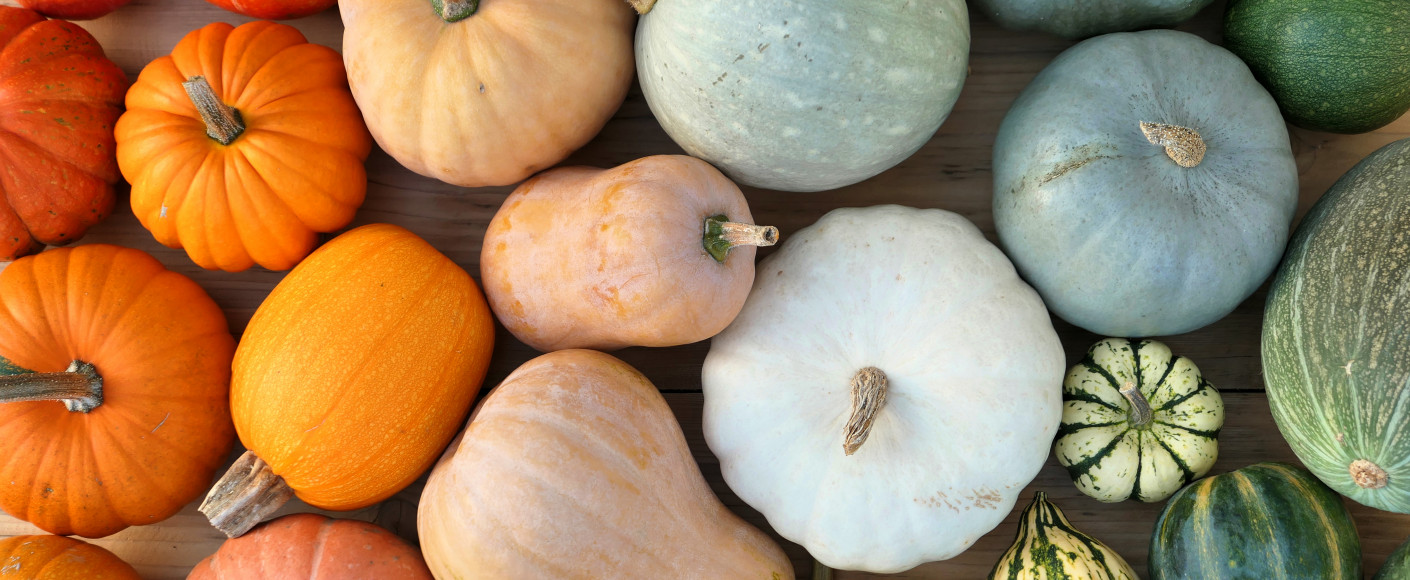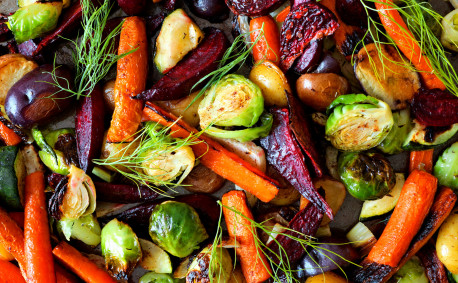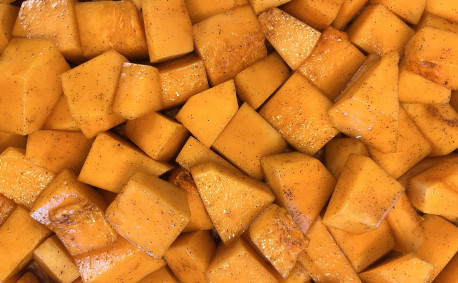Types of Winter Squash
When it comes to fresh produce, summer gets all the glory. Who doesn’t love tomatoes ripened on the vine or fresh ears of corn? But there’s no denying winter has it going on, too, with all sorts of delicious, hearty, sweet and earthy varieties of winter squash.
What you may not know is that winter squash is actually grown in summer. It’s true!
The Difference Between Summer and Winter Squash
Summer squash — think zucchini and yellow squash — are eaten skin, seeds and all. They have to be tender enough to eat, so they’re harvested early in their growth. Winter squash, on the other hand, have tough rinds. (Typically, we only eat their flesh with a few exceptions like delicata and sweet dumpling.) They’re harvested later than summer squash once the plant has matured. But their journey doesn’t end there.
Once winter squash are harvested, they’re usually stored for a few weeks in a warm, dry place, then moved to a cooler spot for several months. This process helps dry, or cure, the winter squash, making the rind even tougher and concentrating the sugars in the flesh. This is why different types of winter squash taste so sweet.
Fun fact: Not all winter squashes are cured. Acorn squash would dry out too much in the process. You’ll notice their rinds aren’t as hard as other squashes.
Varieties of Winter Squash
Picking out a winter squash feels a little like going to a pumpkin patch. There are so many shapes, colors and textures. You’re probably familiar with butternut and acorn squash, which are commonly found at the grocery store. Spaghetti squash is a family favorite and a great way to sneak in vegetables for picky eaters. (Once you cook it, shred the flesh with a fork and it will come apart in strands that look like spaghetti.) There are even more exotic varieties — like kabocha and turban — that are just as tasty (and really neat looking).
Here’s a rundown of some common squash and their flavor profiles:
- Butternut: Sweet and buttery
- Acorn: Mild, sweet, buttery and nutty
- Spaghetti: Very mild
- Hubbard: Sweet and nutty
- Pink banana: Very sweet
- Striped cushaw: Mild and sweet, often compared to pumpkin
- Delicata: Very sweet, often compared to sweet potatoes
- Kabocha: Very sweet
- Turban: Nutty
- Buttercup: Sweet and creamy
- Sweet dumpling: Sweet and mild
How to Cook Winter Squash
Many winter squashes are excellent roasted or baked because these methods bring out their earthy flavors. Level up by mashing or pureeing them to serve as a side or base for soup. Cubed squash can be sautéed and added to grains like pearled sorghum. Spaghetti squash also does especially well when boiled, while buttercup squash is great steamed.
A little butter and the spice of your choosing can flip the flavor between sweet and savory. Try cinnamon or nutmeg for a sweet angle, cumin or curry for a more savory taste. Milder squash varieties like spaghetti blend into the background to highlight their fellow ingredients, so you can go with bolder flavors like bacon and parmesan. (Spaghetti squash is delicious as a carbonara, just like a typical pasta!)
Tips to Grow Your Own Winter Squash
Thinking about growing winter squash in your garden? Squash can really grow well in Kansas, thanks to our hot summers. Most soil here also drains well, which is a must for squash.
Make sure you plant your seeds after the last frost. Even though they look tough when ripe and cured, squash are quite delicate on the plant. You’ll also need to make sure your soil has a lot of nutrients. Using fertilizer or compost in your garden can help.
Winter squash can take two to three months to mature. Keep an eye on the color of the rind and the sound of the squash to know when to harvest. A deepening color and hollow sound are good signs your squash is ready to be picked.
Several types of winter squash like butternut and pumpkin grow on sprawling vines. If you’re looking for a backyard project, make sure you have enough room for the plants to stretch out. If space is limited, you can try growing a bush squash. These varieties — buttercup, butterbush and golden acorn — are more compact than their vined friends.
Butternut Squash Recipe Ideas
Ready for a taste of some winter squash? Here are a couple of our favorite recipes.




